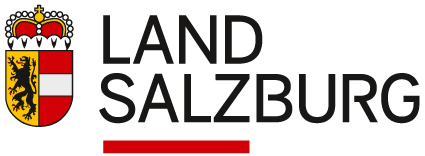Open research positions at JRC ISIA
The Josef Ressel Center on Intelligent and Secure Industrial Automation (ISIA) is a CDG research center at the Salzburg University of Applied Sciences. It is dedicated to fundamental-driven applied research and expects scientific excellence.1
Current vacancies
PostDoc in OT intelligence
| Schedule: | 40h per week |
| Duration: | 1.7.2022 – 30.06.2027, flexible start |
| Salary: | 56861 EUR per year (14× 4061.50 EUR), FWF salaries |
| Place: | Salzburg University of Applied Sciences, Campus Puch Urstein, Salzburg, Austria |
Positions are intended to run for the full project duration of five years, subject to a positive project evaluation by the CDG after 2 years.
Tasks:
- Original research on artificial intelligence, machine learning and data science applied to the setting of industrial automation
- Bridging the gap from fundamental research to applied research
- Implementing software towards the above research goals
- Scientific publication and dissemination in journals and conferences
- Mentoring and supervising students affiliated with the research project
Profile:
- A PhD degree in the fields of Computer Science, Mathematics or similar.
- A research track record in the fields of machine learning, data science, artificial intelligence, algorithm theory, or related parts of signal processing and analysis (e.g., computer vision) with an adequate mathematical background.
- We do not expect a background in industrial control systems, but highly appreciate it.
- Ability to collaborate in an interdisciplinary research team and possibly lead to a certain extent
- Ability to independently write and contribute to publications or other appropriate dissemination methods
- Ability to supervise master theses and master students and mentoring of junior research associates
- Working knowledge in German is of advantage
Please do not hesitate to contact Stefan Huber (stefan.huber@fh-salzburg.ac.at) for details.
What is the JRC ISIA?
The Josef Ressel Center on Intelligent and Secure Industrial Automation (ISIA) is a research center funded by the Austrian Christian Doppler Gesellschaft (CDG), the three company partners B&R industrial automation, COPA-DATA and SIGMATEK, and is further co-financed by the Land Salzburg.
It is a five years research project with the goal to establish long-standing research structures in the field of modern industrial automation linked to artificial intelligence and security well beyond those five years of project duration.
Research Agenda
Discrete industrial automation is in a transition towards significantly increased process flexibility and machine autonomy, which is a consequence of the future needs in the production of goods and the perennial quest towards economical optimization. Three main prerequisites must be established for the bold vision of autonomous industrial machines: A suitable system architecture, elements of artificial intelligence and domain-specific security.
Driven by the vision of autonomous industrial machines, this Josef Ressel Center will address the challenge of devising and engineering a digital assistant for the operation of industrial machines. It forms a largely machine agnostic digital twin and intelligent agent that enables humans to cope with the ever growing complexity and dynamic flexibility of future industrial machine operations. This digital assistant constitutes a hub around which the three interdependent research fields architecture, artificial intelligence, and security will align in the context of operational technology. In collaboration with our company partners, we will build a real-world testbed that acts as research platform to all three research fields.
Exemplary research questions for OT intelligence and OT security are concerned with
- devising a security architecture and a big data/machine learning architecture for OT environments,
- behavioral anomaly detection within operation and security, based on models of cyclic state space trajectories,
- forming honey pots through generative machine learning models of state space trajectories,
- leveraging semantic technologies through semantic modeling capabilities of OPC UA, or
- leveraging model-based methods to achieve machine agnosticity when forming digital twins and machine learning models.
Naturally, this Josef Ressel Center is designed to be a highly interdisciplinary research project in the intersection of industrial automation and computer science.
Organization
This Josef Ressel Center comprises, besides the head, three PostDocs, three PreDocs and six Master students, which are organized in the three research fields OT architecture, OT intelligence and OT security. In addition, a professorship in the fields of robotics and mechatronic, which is associated with this research center, has been established.
-
See this programme document for details. ↩


